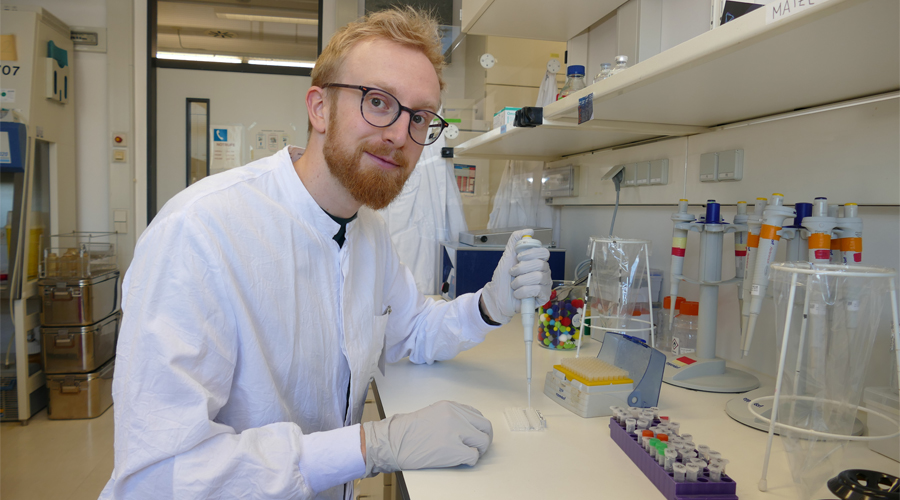The Corona pandemic also turned one of the first doctoral theses produced in RESIST on its head
One of the first doctoral theses produced in a RESIST project is that of Matthias Bruhn; he defended his work at the end of January 2023. The course was turbulent. At the beginning, he had focused on hepatitis B viruses (HBV). But that changed.
Why do protective antibodies not develop in about five percent of HBV vaccinees? In order to find an answer to this question, Matthias Bruhn began his doctoral thesis at the end of 2018. Together with Dr. Annett Ziegler, he is conducting research at TWINCORE in the team of the immune response project B9 of RESIST– supervised by Professor Kalinke and Professor Cornberg.
They already knew that various genetic components of the immune system play a role in the non-response to vaccination. For example, they knew that certain so-called HLA alleles make it more likely that the vaccination will not work. “I was also able to confirm this fact again in my work,” says the researcher. “In addition, we were able to gather evidence that the enzyme TGM2 is important for the immune system to recognise and respond to the vaccine.” In perspective, this finding makes it possible to improve vaccinations against HBV.
Matthias Bruhn would have continued to search for reasons for non-response to HBV vaccination. But due to the Corona pandemic, hardly any test persons could be recruited and he lacked samples. To make a virtue out of this necessity, he devoted himself from then on to SARS-CoV-2: “We developed a technique with which we could isolate the very few B cells that produced SARS-CoV-2-neutralising antibodies from blood samples of convalescents,” he reported. Using single-cell sequencing, the team was able to find out the exact blueprint of these B cells and produce the antibodies themselves. The best of them were intended as a therapeutic and preventive option. Vaccines did not exist at that time.
But that changed: vaccines were developed and new coronavirus variants emerged against which the antibodies produced were not effective. Which antibodies could protect against as many virus variants as possible? This was now the pressing question. “Knowing that B cells insert mutations into the antibody genes for months, causing the antibodies to mature and work better and better, we developed a new technique to find these more mature antibodies,” Matthias Bruhn reports. For people who cannot be vaccinated, for example immunosuppressed patients, this step towards a new therapy option is of great value.
The photo shows Dr. Bruhn at his laboratory workstation.

